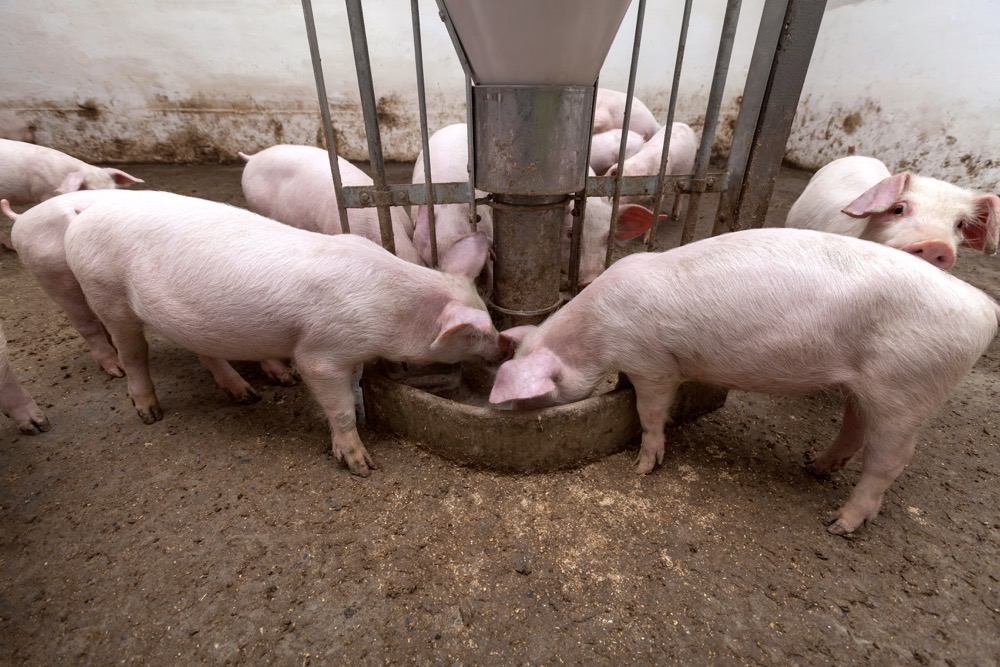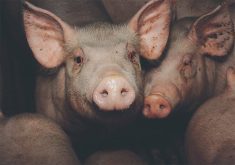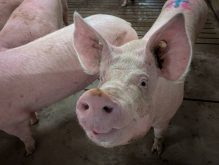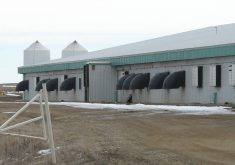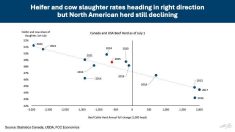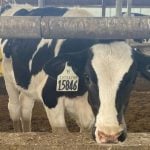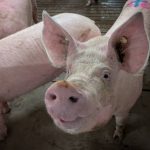Audits to check against the use of the feed additive ractopamine are the latest casualty of COVID-19.
The Canadian Food Inspection Agency (CFIA) said May 20 that third-party audits under the Canadian Ractopamine-Free Pork Certification Program may be postponed. Facilities with audits between March and the end of May are impacted, the agency said.
Why it matters: Ractopamine was at the heart of the Canadian meat sector’s trade problems with China last year, but the Canadian Pork Council is assuring that postponing audits due to ongoing issues with COVID-19 won’t impact trade.
Read Also
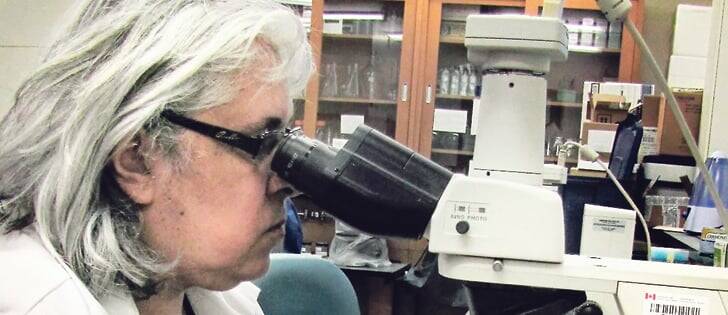
AAFC organic research program cut
Canada’s organic sector says the loss of a federal organic research program at Swift Current, Sask., will set the industry back.
About 41 feed facilities had audits scheduled in that period, according to the CFIA.
“Depending on individual circumstances, some of these facilities may choose to delay their third-party audits until a later date when concerns related to COVID-19 are reduced,” the agency said in an emailed statement.
A total 340 feed facilities are registered with the Canadian Ractopamine-Free Pork Certification Program (CRFPCP).
Gary Stordy, director of government and corporate affairs with the Canadian Pork Council, says the news was not totally surprising, nor does he expect the measure to significantly impact the industry, given other stresses the sector faces.
Canada’s pork sector has been hard hit by processing bottlenecks and market free fall due to COVID-19. Supply chains have backed up in the last month, thanks to major plant closures or production slowdowns both in Canada and the U.S. as plant staff have fallen ill.
In late April, Hams Marketing estimated that about 15 per cent of U.S. pork capacity at that time was closed due to COVID-19 outbreaks, while the closure of an Olymel plant in Quebec also stranded tens of thousands of market-ready hogs.
The CRFPCP will continue to operate regardless of audits, Stordy noted.
“It’s not a new program where people have to learn how to administer it and do it,” he said. “We just do not use ractopamine and this is a clerical process to demonstrate that and back up the results of the tests that are taken.”
The integrity of the program will still be underwritten by producer-processor contracts, traceability and random tests at the processing level, he noted.
Ractopamine, which is designed to improve an animal’s energy uptake from feed, is approved in Canada, but is banned in target markets such as China and the European Union. The Canadian pork sector has voluntarily moved away from the additive in order to access those markets, enforcing that move under the CRFPCP.
In June and July 2019, China suspended pork and beef trade with Canada over ractopamine residue in one pork shipment. That shipment was later discovered to have a false export certificate.
Canada’s continued ability to export has been critical in maintaining the sector despite its current market woes, Stordy said, making any move that might impact trade a concern.
He does not, however, expect a temporary audit delay to fall under that label.
The audits provide, “oversight,” he said. “But there are a lot of checks and balances in the system.”
The CFIA says it will be re-evaluating the decision as the pandemic shifts.


